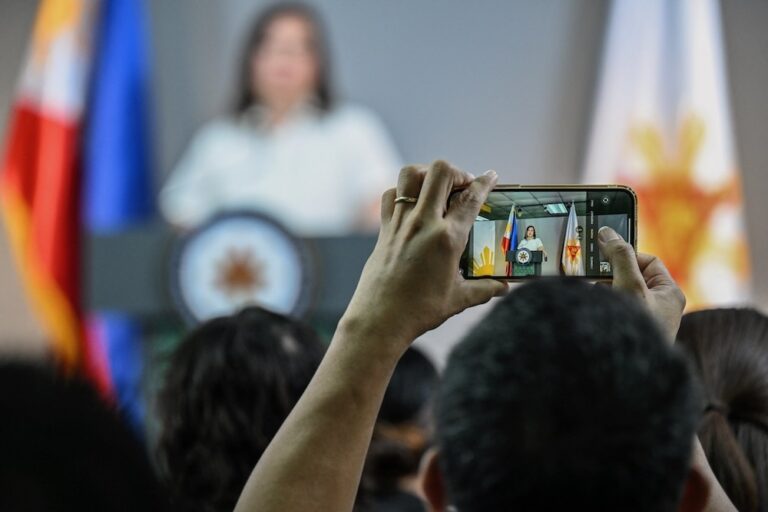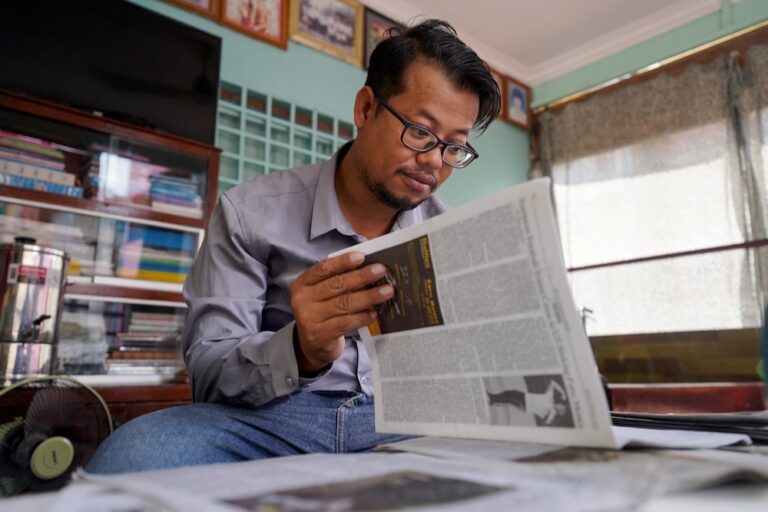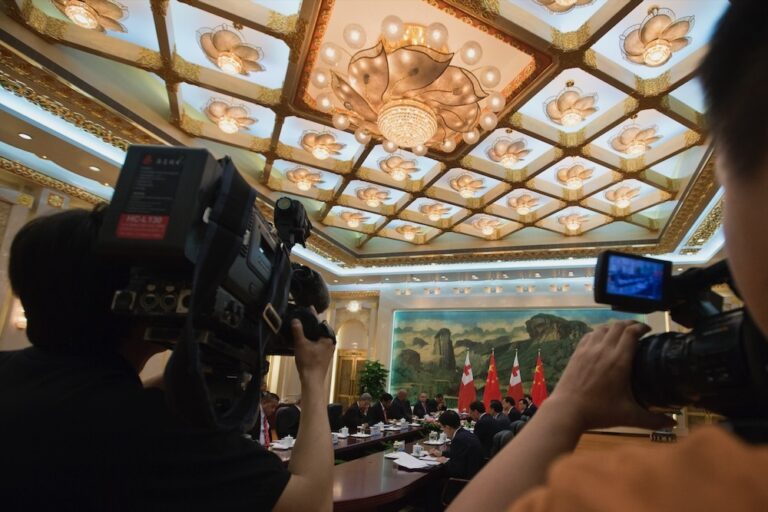The South East Asian Journalists Unions (SEAJU) have taken a united stand to combat the rampant state of impunity for journalist attacks in the region and to jointly advocate for a free and vibrant independent media.
This statement was originally published on ifj.org on 31 October 2014.
The South East Asian Journalists Unions (SEAJU) have taken a united stand to combat the rampant state of impunity for journalist attacks in the region and to bring their unions together to advocate on the common issues central to the craft of journalism and a free and vibrant independent media.
The second annual SEAJU networking meeting, convened by the International Federation of Journalists (IFJ), brought together the network of IFJ affiliates included journalists, human rights activists and union leaders from the Philippines, Indonesia, Cambodia, Thailand, Timor Leste, Malaysia and Myanmar.
The meeting held in Malacca on October 28-29 endorsed a three-point plan of action focusing on impunity, censorship and wage insecurity as areas of critical concern for media workers in the region.
“A journalist is killed at the rate of one every 10 days across the Asia-Pacific region and more and more media workers are being threatened and intimidated as a means to silence dissenting voices and criticism,” SEAJU said in its joint statement. “Meanwhile journalists are facing this increasingly hostile environment as their wages and job security are also being eroded beneath them while censorship continues to tighten its vice-like grip in some countries.”
Held on the eve of the inaugural UN-declared International Day to End Impunity for Crimes Against Journalists, the SEAJU leaders called on ASEAN to give due respect to media workers on the UN day this Sunday, November 2.
The SEAJU also called on governments to implement the recommendations of the UN Plan of Action on the Safety of Journalists and the Issue of Impunity to ensure justice is delivered – particularly in the case of the Philippines, regarded globally as a haven of impunity for journalist attacks and killings.
The Philippines has been ranked third in the world as the most murderous country for journalists with 171 journalists killed since 1986. In Cambodia, 20 journalists have lost their lives in the line of duty since 1993 – including three killed this year. In Indonesia, there have been at least 9 journalists killed since 1996, while in East Timor justice continues to elude the families of the Balibo Five – a group of Australian and British reporters assassinated during the last days of the Indonesian invasion of East Timor in 1975.
The SEAJU said across the region, attacks, threats and intimidation of media workers continue to play out while governments largely turn a blind eye or fail to adequately investigate cases. In 2014, there have been more than 40 reported cases of violence against media workers in Indonesia, while in Thailand and Myanmar the aggressive actions of state forces has severely impacted on media freedoms.
SEAJU also took note while meeting in Malaysia to call on the Malaysian government to repeal the 1984 Printing Press and Publication Act in order to uphold press freedom.
“A free press is a fundamental feature of a vibrant and accountable democracy. The campaign for repeal of the 1984 Printing Press and Publication Act should be continued because the law is offensive to the constitutional right to freedom of speech and expression enshrined in Article 10 of the Malaysian Federal Constitution,” SEAJU said.
The SEAJU affirmed their commitment to end the environment of impunity and resolved to work closely with national and international organisations to bring an end to impunity, and improve journalists’ safety.
The South East Asian Journalist Unions includes:
Aliansi Jurnalis Independen, Indonesia
Cambodian Association for the Protection of Journalists
Myanmar Journalists’ Association
National Union of Journalists, Peninsular Malaysia
National Union of Journalists of the Philippines
National Union of Journalists, Thailand
Thai Journalists Association
Timor Leste Press Union
Timor Lorosa’e Journalists’ Association


